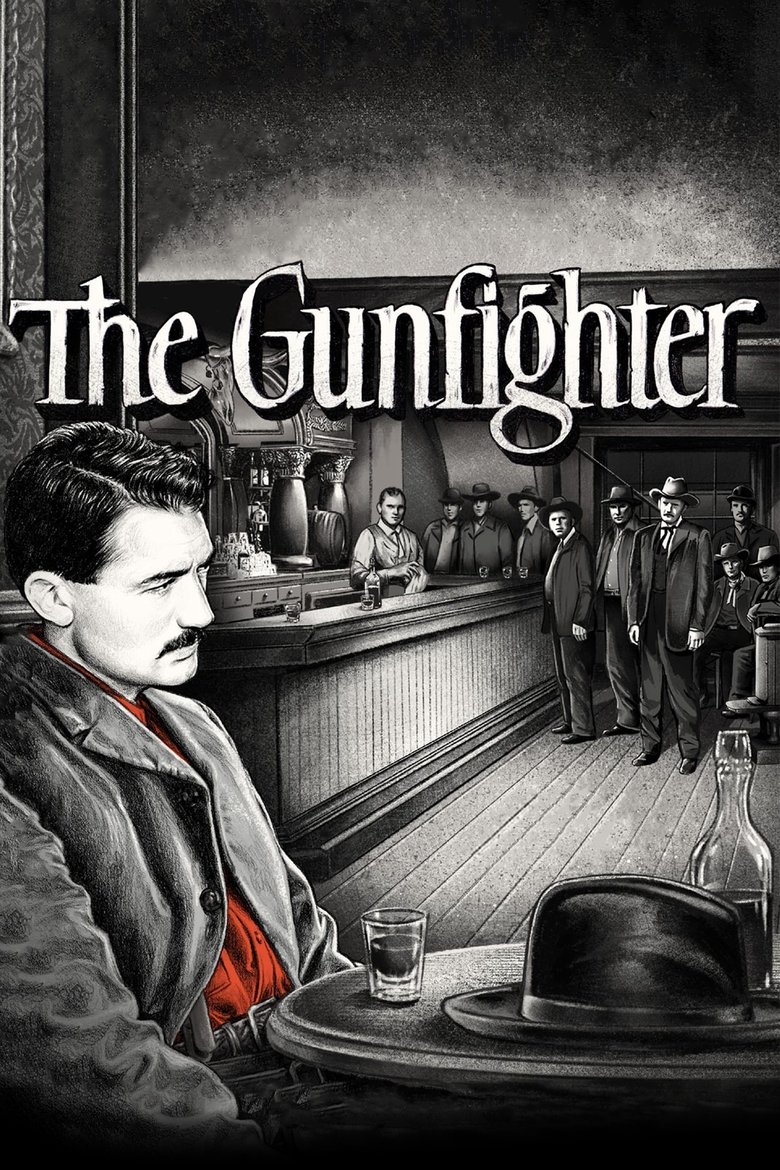
The Gunfighter
The fastest gun in the West tries to escape his reputation.

The fastest gun in the West tries to escape his reputation.

***Dramatic B&W Western starring Gregory Peck in the titular role***
Released in 1950, “The Gunfighter” stars Gregory Peck as a middle-aged quick-draw gunfighter who rides into a Southwestern town where his fame excites the populace and attracts young bucks wanting to make a name. Millard Mitchell plays the sheriff, an old friend, while Helen Westcott appears as his former babe. Karl Malden plays the bartender while Jean Parker is on hand as a saloon singer.
The movie starts great with a saloon confrontation and a chase in the desert wilderness. Too bad the B&W photography renders the awesome locations flat.
From there the story turns dramatic and it’s done well as we get to learn about the gunfighter through his conversations with peoples he’s known. There are a couple of hokey elements but, for the most part, this is a potent Western drama. I didn’t like the ending though; I think it was a cop-out and something better could’ve been scripted. For one thing, a certain character wasn’t a criminal (that is, if the dialogue is to be believed); he only shot others in self-defense, about 15 people, which is even illustrated in the opening scenes.
The film runs 1 hour, 25 minutes and was shot in California and Arizona.
GRADE: B

A moustachioed Gregory Peck is the renowned, but now reformed, gunslinger "Ringo" who rides into his hometown hoping to meet up with his old flame "Peggy" (Helen Westcott) and his young son - whom he has yet to actually meet! The locals are less than enthusiastic at his arrival - especially the prudish elder women, but then neither is "Peggy" nor the fair-minded sheriff (Milllard Mitchell). Indeed, once news of his arrival spreads he becomes a magnet for people keen to have a pop at this legend. The most irritating of them proves to be "Bromley" (Skip Homeier) and with tensions rising we wonder just how long "Ringo" can use his wits instead of his guns. Karl Malden is quite good as the barman who shares quite a bit of the accruing danger and as Henry King keeps us interested for just shy of ninety minutes, we are taken on a trip that gradually and effectively builds the sense of imminent peril. Peck is on good form and Homeier also rather good as the youth with the scent of blood and fame in his nostrils. It's quite sparingly scripted; well scored by Alfred Newman and paced slowly but deliberately as we think we know what's bound to happen - but will it?